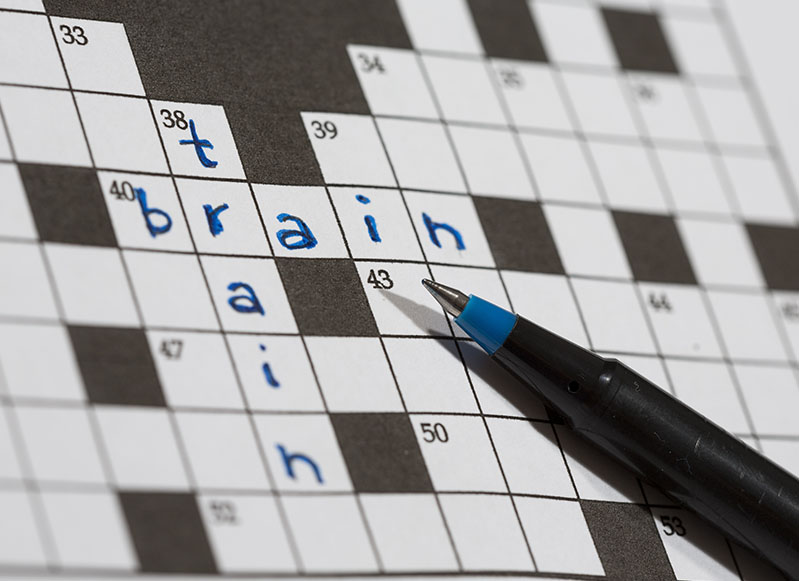The brain controls all functions of the body, which is why it’s vital to actively maintain its health. Most people exercise their body to remain physically fit, but it’s equally important to exercise the brain to keep mentally fit. Research has shown that a combination of mental and physical exercises benefits the brain over the long term.
Regular exercise can help relieve stress, restore chemical balance, improve focus, and have a positive impact on overall productivity. With the help of physical exercises, you can keep problems like memory loss and degeneration at bay.
Mental Brain Exercise
Our brain gets plenty of mental exercise during childhood. Kids are always learning new things, experimenting, and experiencing new sensations. As we grow old, the level of stimulus starts to slow down until we fall into a rut. Adults are often switching between work, rest, and personal responsibilities; most of these tasks rarely stimulate the brain. This has a negative impact on the most vital organ in our body.
Here are some mental exercises that can help:
- •Learn a New Language – This is one of the best ways to exercise the brain. Learning a new language stimulates the mind and prompts the brain to develop new connections.
- •Switch Hands – Something as simple as switching hands on a task can exercise the brain. Brush your teeth, write, operate the mouse, and eat with your non-dominant hand to get the best exercise.
- •Read Books Out Loud – Reading books out loud is far different from reading them silently. We usually skim through entire sections, don’t focus on every single word, and speed-read through the pages. While just reading provides ample stimulus, reading out loud forces the brain to focus. This process also stimulates the areas of the brain that are responsible for reading, hearing, and speaking.
- •Take A Different Route – Predicable patterns are the brain’s worst enemy. The daily commute to the workplace is one such predictable, repetitive activity, which is why it’s a good idea to consider changing routes as well as modes of transportation regularly for additional stimulation.
- •Up The Difficulty – Our minds have become lazy in this world of Information Technology. We autocorrect spellings, use calculators for basic math, or don’t take them to memorize phone numbers. Taking the more difficult route will stimulate the brain and make it more active.
- •Socialize with New People – Meeting new people and interacting with them regularly provides considerable stimulus to your brain. You subconsciously take note of the person’s voice, appearance, style of speech and interaction, new information about their life and their personality. Your mind processes all of this information at a rapid pace, which exercises your brain.
- •Meditation – It should come as no surprise that meditation is a great workout for the brain. This exercise helps improve your ability to focus, compartmentalize information, and helps reduce stress. According to research, human beings think over 70,000 thoughts every day. It’s not easy to quiet the mind and just sink into a meditative state. This challenge helps exercise the brain.
These are just some of the most effective mental exercises that you can incorporate into your daily life for better mental health. But mental exercises aren’t always enough, so it’s a good idea to incorporate some physical exercises into your routine.
Physical Exercises That Influence the Brain
Physical exercise triggers the reward center of the brain, which releases feel-good compounds like dopamine, serotonin, and norepinephrine into the brain. It increases overall brain activity levels so it forms new connections to handle the load. Better blood and oxygen circulation also helps.
Here are some exercises that are particularly useful:
- •Aerobics – According to research conducted by Harvard University, 120 minutes of aerobic exercise every week can help with physical and mental health. It can reduce anxiety levels, help you feel calmer and happier, and calm the nervous system.
- •Yoga – Yoga is one of the best all-around exercises for both physical and mental development. It slows down cellular aging, restores balance, improves focus, and reduces stress. Yoga goes hand in hand with meditation so the combination of both in your daily routine can have a big impact on mental health. It’s is suitable for people of all ages and physical abilities.
- •Walking – This is one of the easiest exercises and people of all ages can incorporate it into their routine. Walking outdoors is the best way to provide ample stimulus to your brain, especially if you’re walking in a green park or through woods. This exercise improves communication between different areas of the brain, eventually improving your multitasking ability.
- •Running – Running is similar to walking and is ideal for individuals with high energy levels. Our professionals at Silver State Neurology recommend for people who have difficulty focusing on tasks and become restless easily. Just 15 minutes of running will expel excess energy and focus the mind so you’re more productive. It is an instant mood booster so if you feel cooped up inside four walls, this exercise is ideal.
- •Resistance Exercise – We suggest weight exercises at least twice every week to help improve focus and productivity. Weight training has a lot of long-term benefits because it requires careful attention. Switching between different weight training exercises will provide great mental stimulus.
Conclusion


